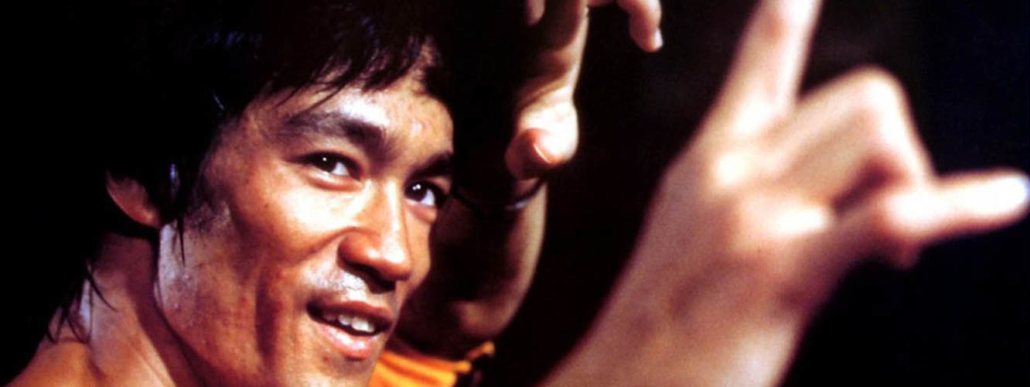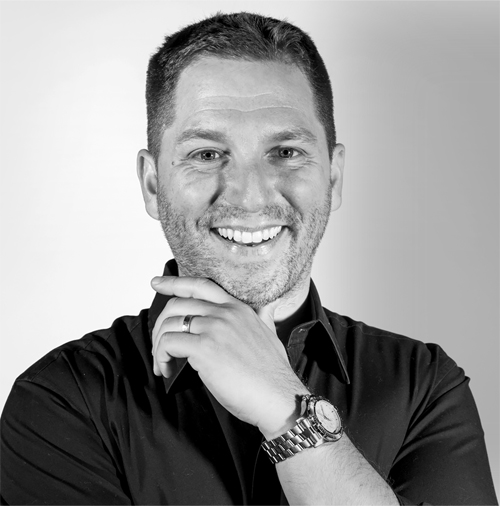
There is no denying the power, prowess, and presence that Bruce Lee bestowed upon the millions of fans during his time.
He was a Hollywood superstar and martial artist extraordinaire. He was also a notable philosopher. His tragic death brought his life’s work to light for the world to read, understand and apply.
For your own Bruce Lee catch up I recommend:
Here are 7 core beliefs that he believed in and you can follow:
1. What are you really thinking about today?
“As you think, so shall you become.”
Perhaps the most basic statement of how we work. Think about what you are thinking today. What do those thoughts say about you? About your life? And how well do they really match your plans for your life and your image of yourself?
It’s easy to forget about this simple statement in everyday life. It’s easy to be quite incongruent with what you think on an ordinary day compared to how you view yourself and your goals. A simple extra reminder such as a post-it with this quote can be helpful to keep you and your thoughts on the right track.
2. Bruce Lee simplified.
“It’s not the daily increase but daily decrease. Hack away at the unessential.”
If you want to improve your life then it’s tempting to want to add more. One problem with this may be that you don’t really have the time or energy to do more though. And so your efforts to improve become short-lived.
Adding more just creates stress and anxiety. Removing clutter and activities frees up time and energy for you to do more of what you really want to do.
As the clutter in your outer world decreases the clutter in your inner world also decreases.
This has the added benefit of making it easier to actually enjoy whatever you are doing even more while you are doing it.
Adding more thoughts and thinking things over for the 111:th time may create a sense of security. It’s also a good way to procrastinate. The more you think, the harder it gets to act. Perhaps because you want to keep that comforting sense of security.
Thinking has its place. It can help you plan a somewhat realistic route to your goal and help you avoid future pitfalls. Overthinking is however just a habit that will help you waste a lot of time.
3. Bruce Lee learned about himself in interactions.
“To know oneself is to study oneself in action with another person.”
The person that is the hardest to get to know is yourself. Studying yourself while you are alone may result in some insights. It’s likely to produce a lot of made up doubts in your mind. A good way to learn more about yourself is to study yourself interacting with others. How people react and act in these interactions can teach you a lot. What you think and how you react can perhaps teach you even more.
What you see, feel and hear in other people may be a reflection of you. The things you learn by thinking this way may not always be pleasant, but they can be enlightening. They help you to see yourself. These powerful insights can be very valuable for your personal growth. So, in interactions with others, try asking yourself: what is reflected?
4. Bruce Lee did not divide.
“Take no thought of who is right or wrong or who is better than. Be not for or against.”
This is a very useful and powerful thought. It is also one that obviously is hard to live by. Why? I believe it’s because the ego loves to divide. It wants to feel better than someone else.
How can you overcome this way of thinking and feeling?
It boils down to not identifying so much with your thoughts or feelings. That doesn’t mean that you stop thinking or feeling. It just means that you realize that the thoughts and emotions are just things flowing through you.
You are not them. You are the consciousness observing them.
When you remember this it enables you to control the thoughts and feelings instead of the other way around. It also enables you to not take your thoughts too seriously. When you are not being so identified these things you become more inclined to include things, thoughts and people instead of excluding them. This creates a lot of inner freedom and stillness. Instead of fear, a need to divide your world and a search for conflicts.
5. Bruce Lee avoided a dependency on validation from others.
“I’m not in this world to live up to your expectations and you’re not in this world to live up to mine.”
The ego wants to add because it thinks it’s not enough. One way of doing that is by craving validation from others. We want to feel smart, pretty, successful and so on. The validation makes you feel good for a while. Soon you need a new fix. The problem with being dependent on validation from other people is that you let other people control how you feel. This creates a roller coaster of emotion in your life.
To find more emotional stability you need to get your validation from a consistent source, yourself. You can replace the expectations and validation of others by setting your own expectations. Validate yourself.
Validate yourself by thinking about how awesome you are.
Don’t sell yourself short. Appreciate how far you have come and the positive things you have done. Appreciate your own value in the world. Set goals and achieve those goals. This builds confidence in yourself and in your abilities. These things will help you to build a habit of inner validation.
Now, showing off. Why do we do that?
To get validation from others. However, this need for validation often shines through and that is why a thing like bragging seldom works. Instead of seeing the cool and successful person you are trying to project people just see the insecure and needy person looking for validation. And your bragging falls flat.
6. Bruce Lee was proactive.
“To hell with circumstances; I create opportunities.”
It’s easy to get locked into a reactive mindset. Follow along with whatever is happening. Do what the people around you do. React to whatever is going on. Get lost in your circumstances. This way of thinking doesn’t feel too good. You tend to feel powerless and like you are just drifting along.
A more useful and pleasurable way of living is to be proactive.
As Bruce says: to create opportunities despite the circumstances around you.
This feels better and provides better results. It’s also more difficult. It’s easier to just drift along in the reactive stream of life. If you want to be proactive then you may have to take the lead quite often. That can be scary.
Still, living proactively is so much more rewarding and exciting.
7. Bruce Lee was himself.
“Always be yourself, express yourself, have faith in yourself, do not go out and look for a successful personality and duplicate it.”
Being yourself is a hard thing to do. You may do it sometimes. Other times you may forget or fall back into old thought patterns. You may imitate someone else. That comes through too. It may work.
I believe that being real will always look better. The genuine you is shining through. Without incongruency, mixed messages or perhaps a sort of phoniness, it’s you to 100%. It’s you with not only your words but you with your voice tonality and body language. Which, some say is over 90% of communication. It’s you coming through on all channels of communication.
I’m not saying: “you should just be yourself because it’s the right thing to do etc.” I’m saying that I think being your authentic self:
– where you do little dividing
– need little validation from others
– ego is not running the show
– not trying to get something from someone
will give you better results and more satisfaction in your day to day life because you are in alignment with yourself. People really respect genuine and authentic people.
With Leadership,
Joshua
www.JoshHMiller.com

Joshua Miller is a creative leader and impactful executive coach.
His career spans both the advertising world and the world of leadership. In advertising, he was the creative lead, responsible for the campaign strategy for Fortune 100 brands. Today, he is an innovator. He’s supporting the executive development and change management for many of the same companies.
Joshua studied at Syracuse University, NYU and Stanford. He combines that background with his deep knowledge of organizational behavior, performance and change management. He focuses on the analysis, design, development, delivery, and evaluation of scalable and global talent development solutions programs.
Joshua is a Master Certified Coach. He trained with the International Coaching Federation and CTI (The Coaches Training Institute).